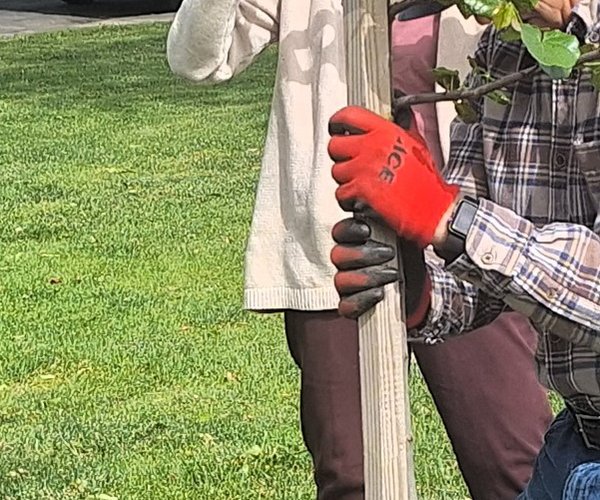Manteca — if the city continues spending money as it plans to in the fiscal year starting in 15 days — will wipe out its general fund reserves before the end of 2023.
That’s because the $49.7 million general fund budget for day-to-day services such as police and fire that the City Council adopted Tuesday is being balanced by drawing down $9.5 million in reserves.
It is those reserves, or more precisely replenishing them to 25 percent of the general fund budget under existing council policy, that Mayor Ben Cantu continues to push to be slashed even further.
Tuesday the mayor said he wanted the reserve percentage cut to 20 percent. His suggestion had no takers.
“If we are using almost half of it (the set aside reserve of 25 percent), I’m extremely happy it was that high,” noted Councilman Charlie Halford.
Halford — noting that while things are looking positive — pointed out if the recovery lags or other economic issues pop up based on the money needed to balance the upcoming budget the general fund reserves would be depleted within 2½ years.
Halford reminded the council in 1977, when he was working as a Manteca Police patrol officer, general fund reserves plunged to less than $1,000.
That led to the city, among other things, being forced to buy used CHP vehicles with 90,000 miles on them to patrol city streets and not opening the just-finished Louise Avenue fire station because Manteca lacked funds to staff it with firefighters.
Councilman Gary Singh noted that the previous council he served on with Steve DeBrum as mayor that he and his colleagues “worked hard” to build up reserves to 30 percent so Manteca could weather periods like the past 18 months economic rough waters created by the pandemic lockdown.
Cantu, shortly after he was sworn in as mayor 31 months ago relentlessly started pushing to reduce the general fund reserve from 30 percent to 20 percent.
He argued the reserves were essentially too large in terms of preparing for a rainy day fund as they were preventing the city from providing new amenities and not simply maintaining or upgrading existing amenities. Cantu emphasized every chance he could that is what he campaigned on and that was what voters told him they wanted.
Cantu enlisted the help of former City Manager Miranda Lutzow who had a survey done of other cities to see what their general fund reserve percentages were. They ranged from 18 to 30 percent.
The rest of the council agreed to reduce the general fund reserve to 25 percent. Cantu wants it to be lowered further to 20 percent
Halford pointed out if the reserves were cut to 20 percent it would only free up roughly $2 million in one-time money. In doing so it would raise the risk of the city not being able to avoid reductions in municipal service levels during future economic downturns.
The debate over reserves is not over yet.
The council in the upcoming weeks will decide what to do with $13.9 million it is receiving as its share of federal COVID-19 relief funds aimed at cushioning economic setbacks cities, counties, school districts, and states.
Elected leaders could opt to backfill the reserves all at once by tapping $9.5 million of the relief funds. Or, as several council members have suggested, it may be less jarring to rebuild the reserves over several years that could free more of the relief funds for civic needs.
There are signs — and events on the horizon — that point to the Manteca economy not just recovering for the most part from the impacts of the lockdown but to actually be ahead of where it was before the pandemic hit.
*Sales tax revenues in the upcoming fiscal year starting July 1 are now expected to hit $14.1 million, up from the previously anticipated $13.4 million. The change was based on a more robust fourth quarter than anticipated. The annual pre-pandemic sales tax revenue flowing into the city had reached $13.8 million.
*Now that Great Wolf is opening June 29, it will mean the city will start benefiting from room taxes that aren’t needed to settle the terms of the incentive deal to share those taxes that is in effect for 25 years. Due to an increase in the room tax voters approved, that can mean $1.7 million in the initial first full year of operation. That money would start making its way into the city’s general fund toward early 2022.
*Property taxes, the biggest source of municipal general fund revenue, continues to grow thanks to new construction, resales, and the 2 percent annual cap on assessments under Proposition 13.
Given both the sales tax bump and Great Wolf do not represent money in hand and the city won’t have the audit of the fund balances for the current fiscal year completed until sometime in September, the council concurred with Halford’s suggestion that the 13 ½ new positions in the budget they approved Tuesday won’t be filled until revenue numbers are firmed up. The only exception are new position that are crucial.
The directive does not apply to filling existing positions that are vacant.
To contact Dennis Wyatt, email dwyatt@mantecabulletin.com





